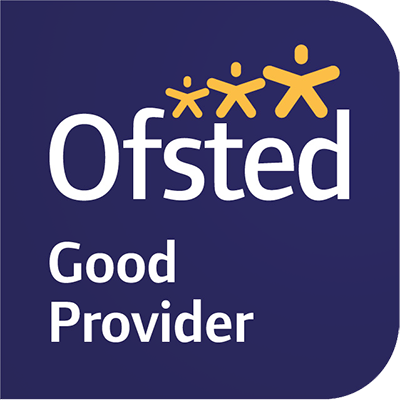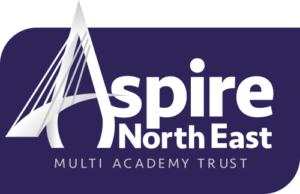Aspire Curriculum Overview
Learning Journey
Knowledge Organisers
- Physical, Mental and Emotional Health; Intimate and sexual relationships; Sexual health; Drugs, alcohol and tobacco
- Identity and diversity; Bullying, abuse and discrimination; Radicalisation and Extremism; Immigration; Multiculturalism
- Respectful relationships, including friendships; Families; Consent
- Rights and responsibilities; Democracy, Law and Justice; British Values; Morals and Ethics
- Online and Media; Internet safety and harms; Media literacy and digital resilience; Managing risk and personal safety
- Money matters; Financial choices; Choices and pathways; Work and career;
- The nature of religion and belief
- Ultimate questions
- Religious concepts
- Importance of religion in people's lives
- Impact of religion on the world
Key Stage 3 Curriculum
Our Key Stage 3 Curriculum:
Three-year KS3 and two-year KS4 courses, with 1 hour per week allotted for each.
Download the full policy at the link above for a full break down of learning for each Term.
Key Stage 4 Curriculum
Our Key Stage 4 Curriculum:
The KS4 Curriculum is taught over 2 years, with one lesson per week.
Download the full policy at the link above for a full break down of learning for each Term.
Academy Aim
Here at Sandhill View Academy, we aim to securely equip all of our students for life beyond school as successful, confident, responsible and respectful citizens. We believe that education provides the key to social mobility and our curriculum is designed to build strong foundations in the knowledge, understanding and skills which lead to academic and personal success. We want our students to enjoy the challenges that learning offers. Ultimately, we want students to ‘Know More, Do More and Go Further’
Our aims are underpinned by a culture of high aspirations. Through developing positive relationships, we work towards every individual having a strong belief in their own abilities so that they work hard, build resilience and achieve their best.
Intent
The curriculum includes formal teaching through subject areas, assemblies and extracurricular activities. We regularly review content to ensure we continue to meet our curriculum aims. The Aspire curriculum is planned to allow students to think critically about the world they live in by combining SMSC, RSE and RE. By studying a range of concepts linked to the twin disciplines of SMSC and Religious education, students will have a greater understanding of a range of events and issues in order to become better functioning members of the local and global communities, as well as more understanding and empathetic towards those people who do not necessarily share their culture, beliefs or geographical factors. The Aspire curriculum is planned to enable all students to cumulatively develop knowledge and skills in the following concepts:
The British values of democracy, the rule of law, individual liberty, and mutual respect of those with different faiths and beliefs are taught explicitly and reinforced in the way in which the school operates. We are also explicitly embedding transferable ‘Skills Builder’ skills such as problem solving, aiming high and teamwork to prepare our students for careers and life after school.
Sequence and Structure
Our curriculum is covered in into Key Stage 3 (years 7, 8 and 9) and Key Stage 4 (10 and 11).
Literacy:
We know that students who read well achieve well. As such, all subject areas are committed to providing regular opportunities to read extensively. In Aspire we provide regular opportunities for students to read and debate within the classroom environment, from a range of genres and following the whole-school focus to improve reading skills and oracy. We aspire for our students to use ambitious vocabulary and are using Frayer models and ‘PUSH words’ to broaden the tier 2 and tier 3 vocabulary students use in written and verbal responses. Coherent and fluent writing skills are also imperative for student achievement; to this end, we support student writing skills by offering opportunities for extended writing, with modelling and sentence stems to support. All curriculum areas use literacy end point documents which detail yearly end points for reading, writing and oracy to ensure consistent literacy skills embedded across the curriculum.
Skills Builder
We are also explicitly embedding transferable ‘Skills Builder’ skills such as problem solving, aiming high and teamwork to prepare our students for higher education and employability skills for the future. This year in History we will focus on TEAMWORK including group decision making and recognising the value of others. PROBLEM SOLVING by exploring complex problems by analysing cause and effect, and understanding through research. Furthermore, we want our students to AIM HIGH by setting goals, prioritising tasks and involving others.
How does our Curriculum cater for students with SEND?
Sandhill View is an inclusive academy where every child is valued and respected. We are committed to the inclusion, progress and independence of all our students, including those with SEN. We work to support our students to make progress in their learning, their emotional and social development and their independence. We actively work to support the learning and needs of all members of our community.
A child or young person has SEN if they have a learning difficulty or disability which calls for special educational provision to be made that is additional to or different from that made generally for other children or young people of the same age. (CoP 2015, p16)
Teachers are responsible for the progress of ALL students in their class and high-quality teaching is carefully planned; this is the first step in supporting students who may have SEND. All students are challenged to do their very best and all students at the Academy are expected to make at least good progress.
Specific approaches which are used within the curriculum areas include:
- Seating to allow inclusion
- Differentiation activities to stretch and support in all lessons
- Resources are accessible yet challenging
- Displays and visual learning tools are used where necessary
- Where appropriate support from additional adults is planned to scaffold students learning
- Group work and discussion
- Clear teacher/student communication
- Feedback that allows students to make progress, whether written or verbal
- Independent study/homework
- Intervention when required
How does our curriculum cater for disadvantaged students and those from minority groups?
As a school serving an area with high levels of deprivation, we work tirelessly to raise the attainment for all students and to close any gaps that exist due to social contexts. The deliberate allocation of funding and resources has ensured that attainment gaps are closing in our drive to ensure that all pupils are equally successful when they leave the Academy. More specifically within the teaching of History, we;
- Work to identify barriers, interests and what might help each
- Pupil make the next steps in learning using lead practitioner research and actions to support.
- Provide targeted support for under-performing pupils during
- Lesson time, such as targeted questioning, live marking and seating, in addition to revision lessons and intervention outside school hours.
- Use strategies best suited to addressing individual needs
- Ensure there are opportunities for students to make use of resources and gain homework support outside of lesson time through the use of Teams
- Provide students with revision materials to reduce financial burden on families
How do we make sure that our curriculum is implemented effectively?
- The SMSC and RE leads are responsible for designing the Aspire curriculum and monitoring implementation.
- Monitoring is validated by senior leaders.
- Staff have regular access to professional development/training to ensure that curriculum requirements are met and subject knowledge developed
- Effective assessment informs staff about areas in which interventions are required. These interventions are delivered during curriculum time to enhance pupils’ capacity to access the full curriculum.
- Curriculum resources are selected carefully and reviewed regularly.
Assessments are designed thoughtfully to assess student progress, long term knowledge retrieval and also to shape future learning. - Assessments are checked for reliability within departments and across the Trust.
We have staff who mark for exam boards and provide vital CPD to the rest of the department to ensure reliability of data.
How do we make sure our curriculum is having the desired impact?
- Termly assessments based upon prior learning for retrieval-analysis and evaluation meetings
- Lesson observations
- Learning walks for KS3 and KS4 based upon departmental priorities
- Work sample for each year group cross referenced against milestone assessment end points
- Regular feedback from teaching staff during department meetings
- Regular feedback from Middle Leaders during curriculum meetings
- Pupil Surveys
- Parental feedback




